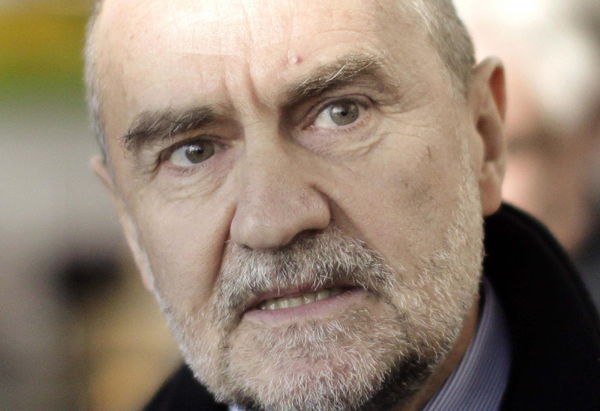Agency urges response to 'credible' evidence of weapons research
Experts from the International Atomic Energy Agency were back in Teheran early on Wednesday to try to resolve long-running differences with Iran over its controversial nuclear program.
The eight-person team, led by Herman Nackaerts, the UN agency's chief atomic inspector and deputy director, was greeted at the airport by Iran's envoy to the IAEA, Ali Asghar Soltanieh, the ISNA News Agency reported.
 |
|
Herman Nackaerts, head of a delegation of the International Atomic Energy Agency (IAEA) speaks to media before his departure for Iran from the airport in Vienna Jan 15, 2013. A senior U.N. nuclear watchdog official said on Tuesday he was aiming for an agreement with Iran this week on a framework deal enabling his inspectors to investigate suspected nuclear bomb research. [Photo/Agencies] |
It was not clear who would represent Iran in meetings on Wednesday, but the office of top nuclear negotiator Saeed Jalili is in charge of decisions regarding Teheran's atomic program - on behalf of Supreme Leader Ayatollah Ali Khamenei, who has final say on all key state matters.
"Iran's policy against seeking nuclear weapons has been clear and consistent," Iranian Vice-Minister of Foreign Affairs Hossein Amir Abdollahian said during a news conference after meeting his Chinese counterpart Zhai Jun and Chinese Foreign Minister Yang Jiechi in Beijing.
As the country's supreme leader, Ali Khamenei has expressed his opposition to developing nuclear weapons on many occasions, including his meeting with foreign politicians, according to Amir Abdollahian.
On Tuesday, before flying out from the agency's base in Vienna, Nackaerts called on Iran to be "constructive".
"Throughout this process, the director-general has always said that we are approaching these talks in a constructive spirit," he told reporters.
"Also this time, we are approaching it in the same spirit, and we trust that Iran will work with us in the same spirit," he added.
But the IAEA's hopes of reaching a deal are not high.
IAEA head Yukiya Amano said on Friday he was "not necessarily optimistic", while a Western diplomat told AFP on Sunday "there still remain some pretty big disagreements" with Teheran.
The agency wants Iran to respond to what it calls "overall, credible" evidence of nuclear weapons research having been carried out until 2003 - and possibly since then.
Iran vehemently denies having ever sought an atomic bomb.
Iran's Foreign Ministry spokesman said on Tuesday that the government hoped to conclude a comprehensive agreement with the IAEA on Wednesday.
But Ramin Mehmanparast, the spokesman, said that would only be possible if the agency recognized Iran's "nuclear rights".
Mehmanparast appeared to play down the chances that the IAEA team might get access to Parchin, a military base near Teheran where the agency's experts suspect Iran could have carried out experiments with explosives capable of triggering a nuclear weapon.
"Parchin has no connection with Iran's nuclear activities," Mehmanparast said. Access to it could be discussed, but only in the context of a possible agreement, he added. But the IAEA has pointed to new information uncovered since its last visits to the site in 2005.
They include satellite evidence that the earth has been scraped and removed over a 25-hectare area, leading to Western accusations that Iran is destroying evidence.
Wednesday's talks will be closely monitored by the so-called P5+1 group - Britain, China, France, Russia, the United States and Germany. Their parallel negotiations with Teheran over the nuclear program are currently stalled.
Amir Abdollahian said Iran's Foreign Ministry has confirmed a new round of talks between Iran and the P5+1 group will be restarted, but they are still discussing the time and place.
At their last meeting, held in June 2012 in Moscow, Teheran rejected P5+1 calls for it to scale back its nuclear enrichment activities, while asking for substantial sanctions relief.
AFP-China Daily